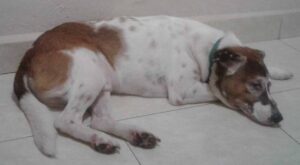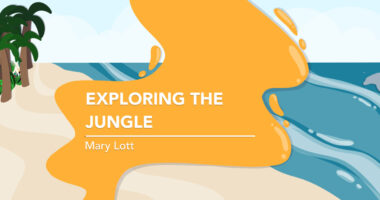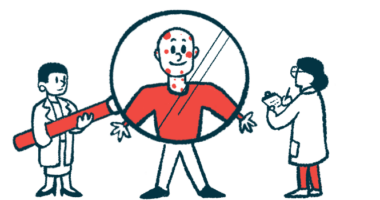A pooch named Pokey brings peace to this CAD patient
I saved his life; now he's saving mine

“Pokey, I’m back!” I called out as I returned from shopping.
I staggered backward as Pokey assaulted me — slurp! slurp! slurp! — in an effort to jump on my shoulder and lick my face.
Placing my shopping bags on the nearest table, I accompany Pokey to the couch and let him jump on my lap, to the couch, across my lap, and all around me, licking and whimpering with joy that at long last, I’ve returned. This process happens every time I step out without him. It’s easier to get his greeting over with than try to postpone it.
How Pokey came into my life
Our expatriate community in Sentani, Papua, Indonesia, is marked by its comings and goings. People move in for a time, perform their jobs, and after a few years move away again. During those years, however, the expat families often acquire dogs. They cannot, for financial and legal reasons, take those dogs with them back to their home countries, so people are always looking for homes for their pets. That’s how Pokey came to me.
Pokey wasn’t a good dog. As a pup, he’d been allowed to roam and had developed the habit of raiding garbage dumps. People would throw rocks at him or try to hit him with brooms. Pokey learned to be fearful, mistrusting, and a bit snappish. No one was willing to take Pokey into their household.
Over time, I gained his trust. He was no longer allowed to roam freely. In those early days, my husband and I became the only humans in his world. He learned to respond to commands such as “sit,” “stay,” “come,” and “OK,” which is a release command. We trained him to respond to vocal commands in two languages as well as to hand gestures.
I’ve especially spent a lot of time with Pokey. He’s my dog, and I’m his human.
Benefits of a companion for a CAD patient
When Pokey moved into our household, I didn’t know that I had cold agglutinin disease (CAD), which is a rare autoimmune disorder where self-targeting antibodies attack and destroy red blood cells at low temperatures. I just knew I was tired all the time. I didn’t want to take more than a few steps without pausing to rest.
That chronic tiredness and a drastic change in lifestyle, from an active person to a solitary recluse, often brings out depression and loneliness. Many symptoms of depression — hopelessness, despair, sleep changes, guilt, self-loathing, problems concentrating, and aches and pains — described me. Pokey has helped me deal with them.
I’ve long thought that pets, especially dogs, are good companions for humans. In the hours when my friends are going about their business and I’m alone resting, Pokey has always been there beside me. He gazes into my eyes, telling me that I’m the most important person in his world. He understands everything I say and thinks I’m the wisest and best person to ever live. My husband is under strict orders not to tell Pokey anything different.
Pokey follows me everywhere through my house. He knows he isn’t allowed to sleep on our bed at night, but often, I wake to find him snuggled next to my legs toward the foot of our bed. He waits until my husband is asleep and, since I wake first, he gets off the bed before he gets into trouble.
Like many dogs, Pokey seems to sense my moods and adapts himself to the care I need. The Banyan Treatment Center of Boca Raton, Florida, reports that dogs indeed sense depression in humans. Pokey bears that out.
Pokey wasn’t going to be adopted until I had pity and took him in. No other family wanted him. That meant he’d suffer the sad fate of many dogs in that part of the world — death, probably by being eaten. Perhaps he senses that.
At any rate, we’ve formed a special bond. I look at him and think, “I saved your life. If it were not for me, you would be dead.” I like thinking that I’ve made a tangible difference in at least one life.
He looks back at me and is perhaps thinking, “Yes, but I’m saving you now.”
Athena, a fellow CADdy, as those of us with CAD call ourselves, said in a recent chat, “I know my dogs help in all areas of my life. They are great therapy!”
I couldn’t have said it better myself.
Note: Cold Agglutinin Disease News is strictly a news and information website about the disease. It does not provide medical advice, diagnosis, or treatment. This content is not intended to be a substitute for professional medical advice, diagnosis, or treatment. Always seek the advice of your physician or other qualified health provider with any questions you may have regarding a medical condition. Never disregard professional medical advice or delay in seeking it because of something you have read on this website. The opinions expressed in this column are not those of Cold Agglutinin Disease News or its parent company, Bionews, and are intended to spark discussion about issues pertaining to cold agglutinin disease.








Leave a comment
Fill in the required fields to post. Your email address will not be published.